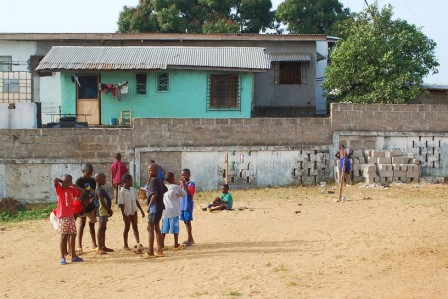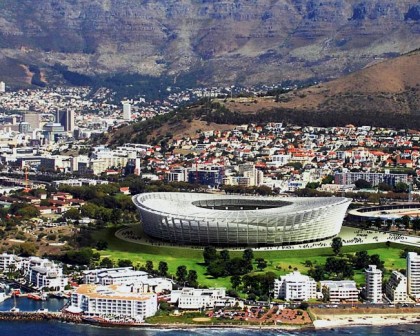World Cup 2010: The Ugly Side of the Beautiful Game
The World Cup will kick off in just three days, and it is the first time that the biggest sporting event worldwide is being held on the African continent. Since the end of apartheid, 21 years ago, South Africa has apparently come a long way, and the mega sporting event is supposed to showcase the progress made by a country that racist policies had excluded from the international community for decades.
A vast majority of South Africans and Africans, however, will not be able to attend the World Cup in the new fancy stadiums built for the occasion because they cannot afford to buy the tickets for the games. Even worse, in the past two years, some residents of shantytowns have been evicted and forced to live in what they call “apartheid dumping grounds” and even “concentration camps.”
This is the case in a suburb of Cape Town where, for the past two years, residents of the Symphony Way shantytown have been forcefully evicted and moved into what the South African authorities call “temporary relocation camps.” The camp near Cape Town provides housing, in the form of corrugated iron shacks, for 15,000 people. The rules in the “temporary relocation camps” are strict: no building, no cooking outside, and a curfew after 10:00 pm. The residents complain that they are deprived of their basic liberties.
The authorities did not even bother to give the camp a postal area code. There is an 80 percent unemployment rate, no school, no clinic, and there are an average of five to seven people in the corrugated structures that measure 3 by 9 meters. The residents endure these conditions just 20 kilometers from Africa’s most expensive stadium, Cape Town’s Green Point stadium, which comes with a price tag of more than $450 million.
In the Western Cape Province alone, more than 400,000 people wait for housing, and the housing projects have been put on hold because all of the money is being spent on the World Cup. For the residents, this echoes the apartheid era, and most of them think they were put in the “concentration camps” because the authorities did not want World Cup fans to see them when they come visit Cape Town’s beautiful Green Point stadium.
On June 4, 2010 Amnesty International expressed its human rights concerns about South Africa during the World Cup. Amnesty International reported a notable increase in police harassment of street vendors, homeless people and refugees who are living in shelters or high-density inner-city areas. The harassment has included police raids, arbitrary arrests, ill treatment as well as destruction of informal housing in shantytowns.
The regulations for compliance with Federation Internationale de Football Association (FIFA) World Cup requirements are being used by the police to expel homeless people and street vendors from “controlled access sites.” Penalties for offenses under the regulations includes fines of up to $1,300 or imprisonment of up to six months. Protesters from poor communities have continued to raise concerns that the vast majority of South Africans are excluded from the benefits of hosting the World Cup. The requirements under the FIFA regulations, which create extensive exclusion zones for informal economic activities, are particularly prejudicial in a country where many totally rely on the informal economy to survive.
Related Articles















You must be logged in to post a comment Login